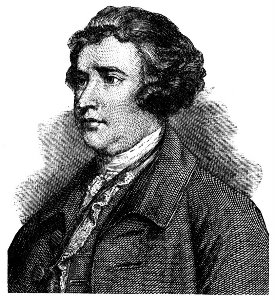Christianity and Conservatism: Natural Allies
 EDWARD LEIGH MP
EDWARD LEIGH MPIt would be unthinkable nowadays for a Tory leader to announce at Conference as the first of the party's main objectives, "To uphold the Christian religion and resist all attacks upon it", as Churchill did in 1946. But it is worth asking why such changes are now beyond the pale. Christianity is the cornerstone on which traditional conservatism rests. From where else do people get their "family values"?
Modern politicians fight shy of talking about religion. They fear they will be accused of moralising, of being holier than thou, of setting themselves up for a fall. Many even argue that politics should be morally neutral, and political debate is the poorer for it. But Christianity is part of our history and culture. All the world's great religions share moral values. Capitalism without a moral context deteriorates to the celebration of self-interest.
Focusing on religion may be too much for some. Perhaps we should refer to our Christian Democrat tradition. This Christian tradition softens our beliefs – for example, we are patriots and we want to preserve our country's sovereignty. But we are not nationalists – we don't despise other peoples.
Our Christian Democrat nature gives us a particular interest in world poverty and social justice. However, we just don't believe that socialism and wasteful use of the public's money solves the problems.
As Conservatives we believe in the value of prison as a deterrent. As Christian Democrats we emphasise that prisons must be given a chance to reform, not just to punish. Our Christian Democrat tradition gives us both our belief in the traditional family and tolerance of other ways of life. But if we believe that religion and faith have a role in society we must say so.
If we believe in traditional families where men and women commit themselves to each other then we must say so. Proclaiming our ideal does not prevent compassion for those who fall short of it.
Critics say that Britain has changed, that we must modernise.
Yes, Britain has changed, but Judaeo-Christian values are not the product of an era, they are timeless, eternal.
 Religion, indeed, with few exceptions, has always been a key element in Conservative thinking. Ever since Edmund Burke wrote Reflections on the Revolution in France, conservatism has largely been advanced on the basis of a Christian worldview. For Burke religion was "the basis of civil society". He called Christianity "one great source of civilisation".
Religion, indeed, with few exceptions, has always been a key element in Conservative thinking. Ever since Edmund Burke wrote Reflections on the Revolution in France, conservatism has largely been advanced on the basis of a Christian worldview. For Burke religion was "the basis of civil society". He called Christianity "one great source of civilisation".Disraeli also defended religion: "A wise Government, allying itself with religion," he thought, "would as it were consecrate society, and sanctify the State".
In 1912 Lord Hugh Cecil argued in Conservatism that no discussion of politics can avoid dealing with morality. He contended that the latter could not be properly addressed without reference to religion. It is worth quoting him at length:
As long as Conservatism makes the fulfilment of its duties to religion the first of its purposes, it will be saved from the two principal dangers that…threaten it: the danger [either] of sinking into a mere factious variation of liberalism… propounding measures not distinguished by any pervading principle: or of standing only for the defence of those who are well off...So no one should doubt the centrality of Christianity in the tradition of Conservative thought. This of course entails a grave duty to help the poor. But few ecclesiastics – at least before the 1960s – identified this with uncritical support for the socialist welfare state as the ideal engine of charity. More authentically Christian is the principle of "subsidiarity", as defined by Pope Pius XI in 1931 in his encyclical Quadragesimo Anno:
Just as it is gravely wrong to take from individuals what they can accomplish by their own initiative and industry and give it to the community, so also it is an injustice …to assign to a greater or higher association what lesser or subordinate organisations can do.This is entirely at one with Burke's attachment to "the little platoon we belong to in society" as "the first link in the series by which we proceed towards a love of our country, and to mankind."
Indeed, David Cameron’s new Social Justice Policy Group, established to encourage initiatives by various local organisations, including charities and churches, both wrests back from the Left a hijacked concept and reflects that profoundly Conservative and Christian principle of subsidiarity - or "localism".
As Margaret Thatcher said in a little-known speech in 1978: "The role of the state in Christian society is to encourage virtue, not to usurp it."
